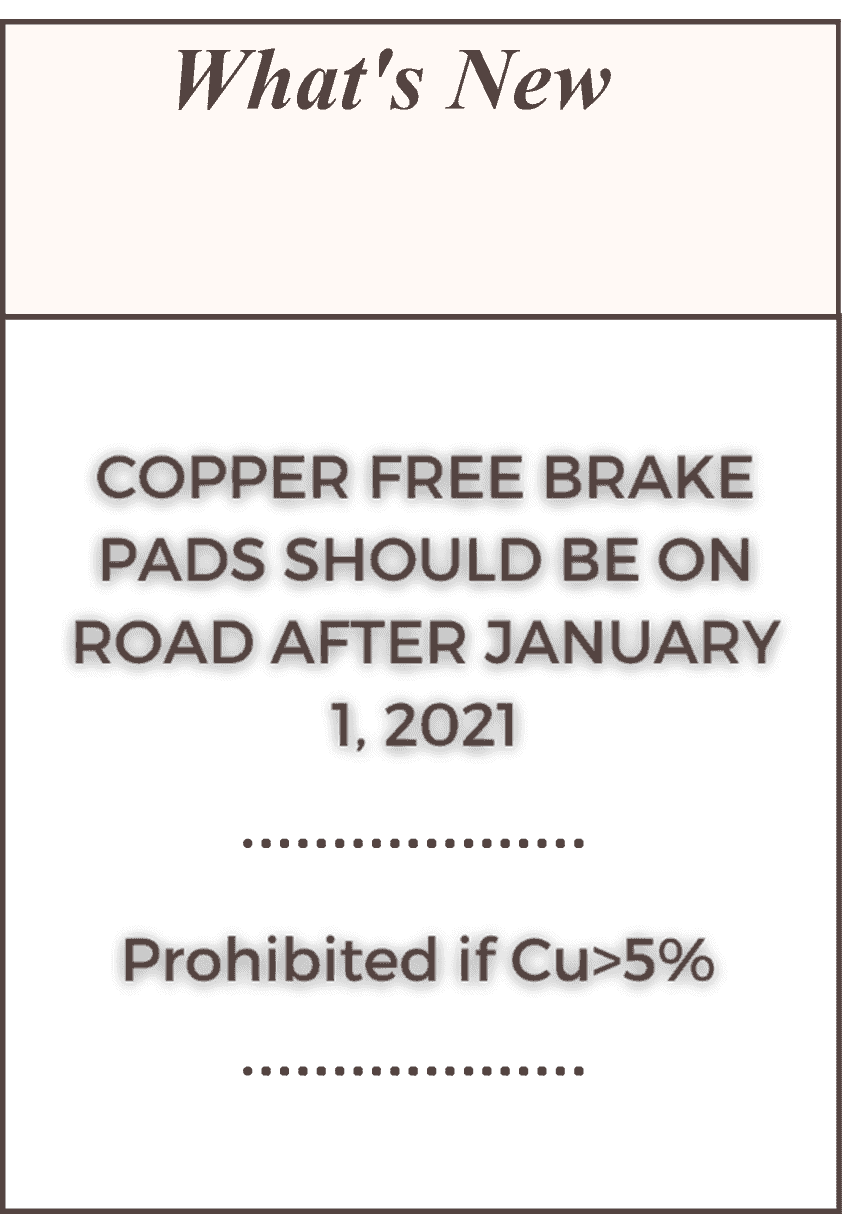 |
Brake Pad Regulation On September 27, 2010 Department of Toxic Substances Control of California and Department of Ecology, State of Washington prohibited the sale of Brake friction products containing more than the allowed threshold limit for heavy metals under the California Motor Vehicle Brake Friction Material Law. According to that regulation, toxic chemicals such as Asbestos, Cadmium, Hexavalent Chromium, Lead, and Mercury are restricted to the minimum allowed amount of 1% in Brake Pads products effective from January 2014 |
Points to watch out for
WHY COPPER?
Copper is highly toxic in nature to all the aquatic species. As brake pads wear down, copper and other metals in brake dust are deposited on roadways, where they are washed downstream and thereby, to rivers.
REGULATION
According to the Regulation, any brake friction materials such as brake pads, brake shoes containing more than 5% copper shall be prohibited for sale in California and Washington from January 1, 2021.
In addition to that, the trace amount of 5% will be reduced to 0.5% from January 1, 2025. So, the products containing more than 0.5% copper will not be allowed for sale after 2025.
The sale of any motor vehicle brake friction materials exceeding the following concentrations is prohibited.
Cadmium – 0.01%
Chromium (VI) – 0.1%
Lead – 0.1%
Mercury – 0.1%
Asbestos – 0.1%
The law requires brake friction material manufacturers to certify and mark that their products meet the prohibitions listed in the article by the restriction date.
ENFORCEMENT
All the Manufacturers, Distributors, and retailers need to be very cautious regarding the brake pad regulation. If compliance is not achieved, the department may assess penalties under various sections.
The Violation of this regulation will lead to a minimum civil penalty not to exceed ten thousand dollars after issuing the warning letter from the officials. The department does not provide warning letters for subsequent violations.

“Safety begins with Compliance”
Check your Brake Pad Products compliance now at compliance@apaengineering.com
If this regulation is applicable to you and you are interested in knowing more about this topic and available solutions, then schedule a free consult with our experts.
